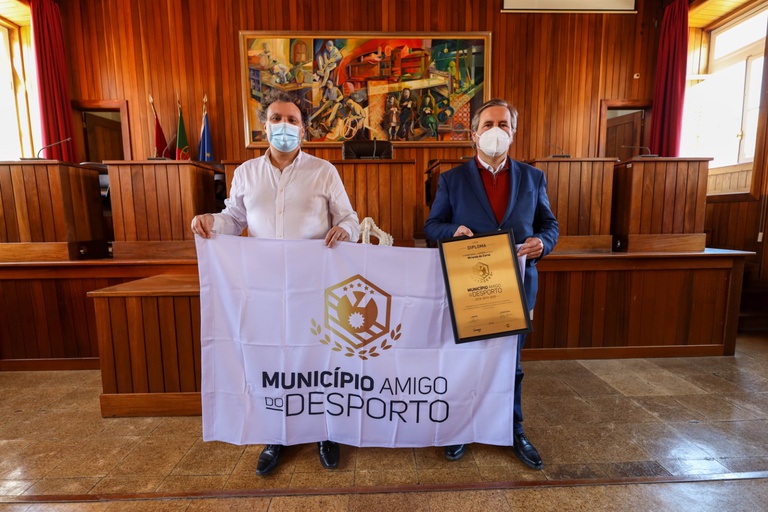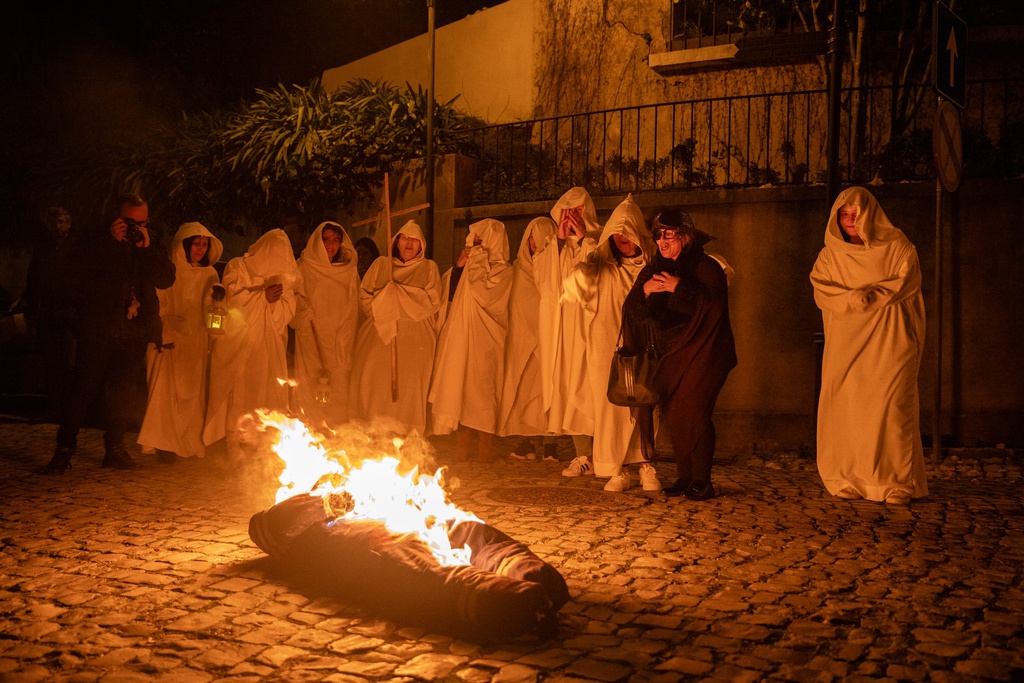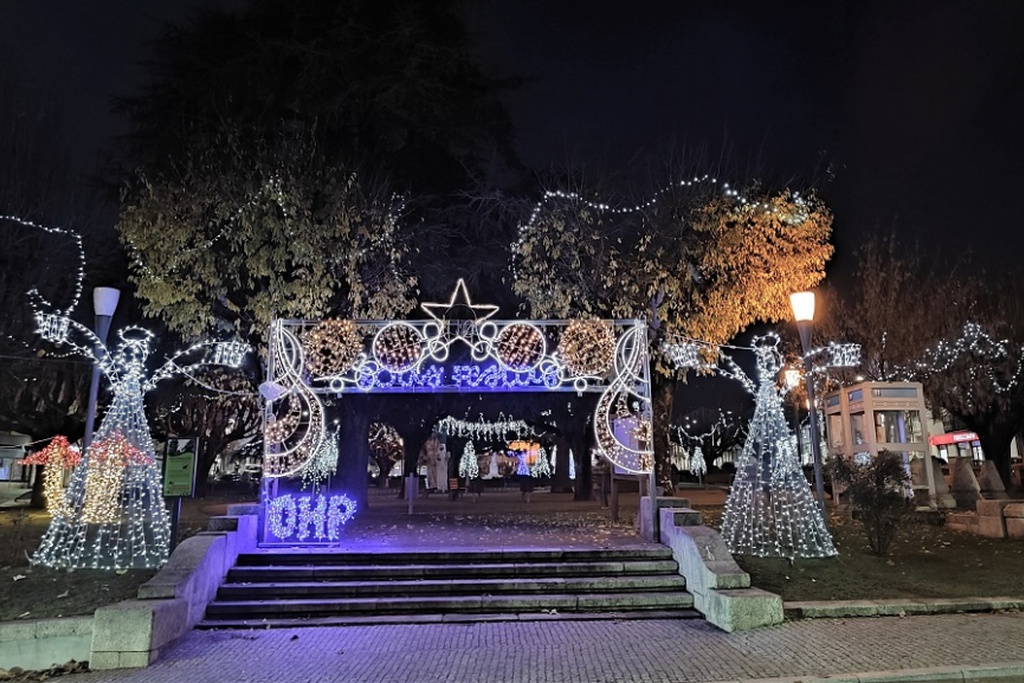Miranda do Corvo Counci was recognised, for the third consecutive year, as a Sports Friendly Local Authority. The award is made by the Cidade Social platform, which honours the good work done by the Council in the Sports sector.
This distinction (official flag) was delivered, on 17 March, to Miranda do Corvo Council that, during this year, will develop a set of initiatives that promote physical activity and sports development throughout the county.
"At a time when the pandemic has brought most sports activities to a halt, it is important to return to normality, in a steady and targeted way, among the various sectors of the population", says the Mayor of Miranda do Corvo, Miguel Baptista.
Certified by the Secretary of State for Youth and Sports, the award seeks to recognise and promote good practice in sports management in Portuguese local authorities and the promotion of sports development in their districts. "Miranda do Corvo's membership of the national network of Friends of Sport brings us many benefits", adds the mayor.
The award recognises the local authority’s potential in sport and holding events on a global scale, such as the World Trail Running Championship organised by Trilhos do Abutres. The competition took place from 6 to 9 June 2019 and featured the participation of 55 teams and more than 400 athletes.
About a dozen areas were assessed for this distinction: sports organisation, facilities, events, programmes, ecological sustainability strategies, solidarity sport, partnerships, legislation, marketing, and innovation. The analysis also focuses on aspects such as the management strategy put in place and its results, the development of a sustainable attitude, a solidarity and inclusiveness approach, and the excellence and comprehensiveness of the intervention models.











